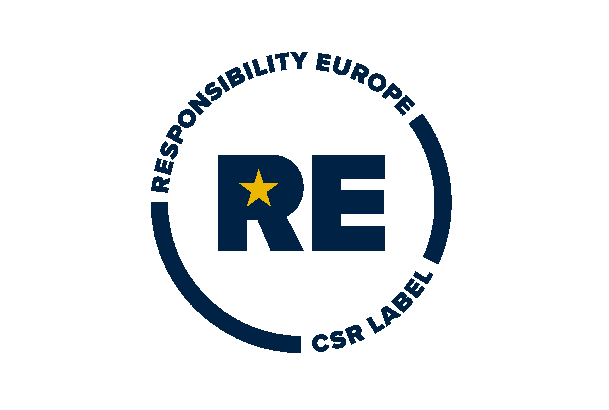Corporate Values, More of an Obligation than Real Added Value?
Do you get the impression that the values displayed by your company do not resonate with its strategic and/or operational reality? Have these values been defined? Do you ever wonder why your organisation should devote resources to identifying values?
In this article, we invite you to think about this, whether your corporate values are already defined or not, and at the end of the article we will propose a small exercise to assess your current situation, find new sources of inspiration and perhaps even improve your standing.
A Quick Reminder: What Exactly are Values?
Let’s look at the definition of a value quoted in the Larousse dictionary:
“Something that is assumed to be true, beautiful and good from a personal point of view or according to the criteria of a society and which is portrayed as an ideal to be achieved, as something to be defended”. [1]
Values are supposed to guide our actions by providing us with a reference point to align to. Whether clearly identified and communicated or, conversely, left unclear and discrete, values exist in all organisations, regardless of their size: from a two-person VSE to a multinational organisation. They form an intrinsic part of a company’s culture. Moreover, identifying the true values of an organisation provides great insight into its internal culture.
Are Corporate Values Like an Empty Shell?
When do we talk about true values? It is not unusual to find stated values that are not experienced as such by employees, which are only communicated to “put on a good face”, to improve the external image of an organisation, but which lack any real substance. In other words, these values are like an “empty shell”, they are meaningless.
The problem with this is that it may have a direct and negative impact on employees, who over time will no longer be able to identify with their employer. In the end, they are likely to end up leaving it or – worse still – expressing open cynicism and irony, thus producing the opposite of the desired effect: degrading the company’s image. This is even more true with respect to young talent, the so-called Generation Z, who are now entering the job market.
Indeed, they are most likely to choose to work for an organisation on the basis of what it represents, ultimately depending on its values. [2]
Make Your Values Come Alive
Don’t worry, fortunately not all organisations fall into the “empty shell” trap. However, it is important to keep in mind that working on values requires commitment from all levels of the organisation. It is an exercise that requires the participation of employees, managers and directors. It is not enough to identify and define values; it is also necessary to live them and integrate them into the way you work, otherwise they risk falling into the empty shell and thus wasting all the efforts that have been made and the resources that have been mobilised.
At MindForest, we practice an exercise we call “A value to honour!”. The principle is as follows: over a period of five weeks, we take turns working on one of our five values. What does it mean to us and how can we make it even more pertinent with respect to our daily activities?
Does Your Company Already Have a Set of Values That it is Proud of?
That is a very good start! Indeed, at MindForest we believe that values play an important role in the life of the organisation. We suggest you test the self-reflection exercise below:
- Are you able to list your company’s values?
- Do you identify with these values?
- Can you explain these values?
- Do you support these values?
- Are your daily actions aligned to these values?
- Would you be willing to publicly display these values?
If it turns out that you are unsure about some of these questions, it may well be that the values your organisation displays are not the values you are actually living.
What Happens if You Have not Identified (or not Correctly Identified) the Company's Values?
Don’t panic, the ship is not going to sink for all that. The first question to ask yourself is: are you ready to commit? Revealing the true values of your company will raise the staff expectations, they will expect you to be able to act accordingly. They will have to be authentic and reflect the real identity of the organisation.
If I could go back and start again with Zappos from the beginning, I would define our values from day one.
According to Zappos CEO Tony Hsieh
So, if you are not ready to show the necessary commitment: then don’t start. “Fake” values will most likely have a negative impact on your organization’s image.
Conversely, if you are prepared to commit to this approach, we suggest that you adopt a participatory approach. At MindForest, we have developed an approach based on several tools, which makes it possible to capitalise on collective intelligence, this enables our clients to identify the values of their organisation, to define them, to apply them and to communicate about them. In a second step, we accompany them with the deployment of these values within the organisation.
A Long-Term Approach
Subsequently, it will be a question of ensuring that the organisation actually functions in accordance with its values, that decision-making or the recruitment of new staff, for example, takes them into account. It will also be vitally important for managers and directors to lead by example in their decisions and actions, as this will reinforce the message to employees and demonstrate management commitment to living by these values.
Working on the company’s values is a long-term process, in the sense that it is not just a question of creating a charter or a brochure, but of integrating them into the daily life of the company and defining initiatives to give them true recognition. It may also be interesting to reappraise these values every 5 years to check that they are still in line with the internal culture of the organisation, thus creating an environment in which employees feel motivated and committed.
WANT TO RECEIVE OUR LATEST THOUGHT LEADERSHIP CONTENT?
Related posts
 Digital Transformation and Change Management: Lessons shared in an event hosted by Cebi and MindForest
Digital Transformation and Change Management: Lessons shared in an event hosted by Cebi and MindForest
 Can Engagement Help Reduce Absenteeism?
Can Engagement Help Reduce Absenteeism?
 Daring to Lead Positive Transformation: What If you explored a disruptive approach to Change with Appreciative Inquiry?
Daring to Lead Positive Transformation: What If you explored a disruptive approach to Change with Appreciative Inquiry?
 Have you Examined the Advantages of Working with Data Analytics yet?
Have you Examined the Advantages of Working with Data Analytics yet?
 Daring to Lead Positive Transformation: How can you implement and manage positive change with success?
Daring to Lead Positive Transformation: How can you implement and manage positive change with success?




